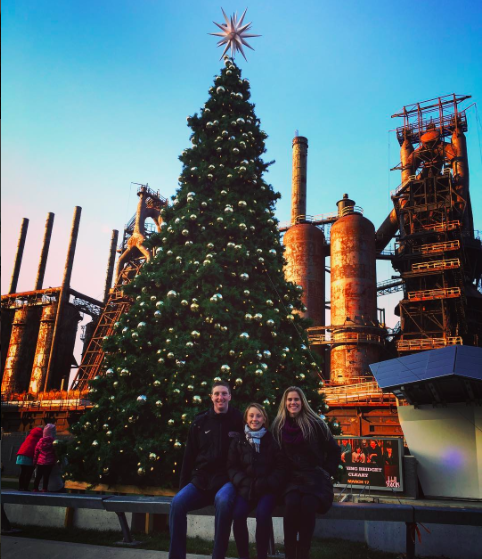Benjamin’s article, “Theses on the philosophy of History”, discusses the narrative of history and how a story of a culture or community can be present through the remains of a building or town. I found this article very applicable to my steel stacks visit as I believe that by maintaining and re-using the space where the stacks are is an effective way of keeping the history of bethlehem alive.
“History is the subject of a structure whose site is not homogeneous, empty time, but time filled by the presence of the now.” (Benjamin, 261)
I found this quote particularly applicable to the Bethlehem Steel stacks as when I was visiting, I remember reading that the stacks are now dedicated to bringing the arts, family and community events to Bethlehem, and that the site has been reborn through the use of music concerts, and large festivals that are hosted there every year. I was surprised to learn that, during the years the plant was open, before it was permanently closed in 1995, the stacks themselves employed tens of thousands of people, and that the metal they were producing was even used by the US Navy during both World Wars. For me, these facts were crazy to learn, as I had never imagined how important these stacks actually were. My roommate and I have a tradition every year where we go to the “Christkindlmarkt” festival hosted at the Stacks that encompasses lots of local crafts and foods along with live music and art displays. I knew of a vague history behind the Stacks, but until now I had no idea just how important they are to the history of Bethlehem and the impact it had on generations of families. Relating to memory, I think that the town of Bethlehem have done a fantastic job of keeping the memory of this select historical narrative alive: the maintenance of the stacks has allowed for the space to be used by families and events that bring not only the community together but also members from outside of the city in, and this allows for the story to be shared past just the natives of Bethlehem. I believe the best way to make people remember history is through visual cues, and the stacks light up at night and stand out so clearly in the downtown of Bethlehem.

